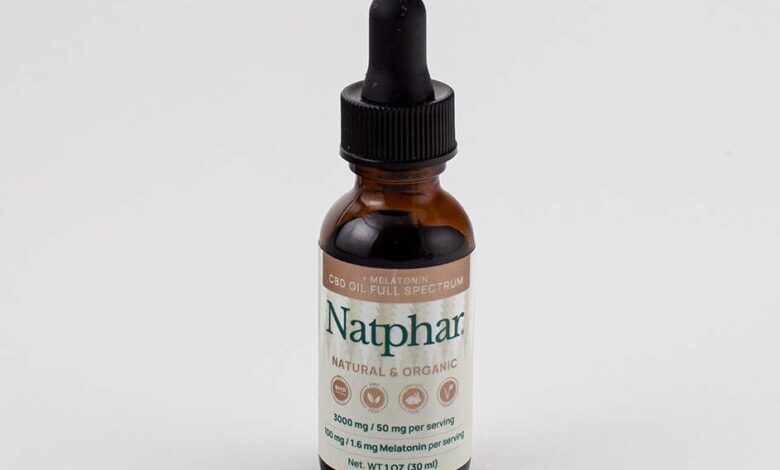The Benefits of CBD And Melatonin Cannot be Overstated.

All over the place, CBD and Melatonin Oil products have been making a comeback. It’s vital to learn more about these products, when they may be most helpful, how they might be used, and possible adverse effects and contraindications before using them.
Table of Contents
Melatonin has numerous advantages.
Everyone produces their CBD With Melatonin, but as we become older, the amount we do so decreases. The body’s daily and annual biological rhythms, including the sleep/wake cycle, are regulated by it. There is a lot of melatonin in newborns to explain why they sleep so much. Most people’s blood pressure remains elevated throughout their adolescence and into college. Natural melatonin production can vary widely, with some people producing far more than others. Insomnia may run in families, which would explain why some people are more prone to it than others.
Melatonin is commonly referred to as the “sleep hormone” because of its role in the body’s circadian rhythms. It belongs to the same family of neurotransmitters as serotonin: the indoleamine. This is important to know since Melatonin Oil and serotonin are closely linked, and a lack of serotonin can lead to lower amounts of melatonin.
It has been found that melatonin can help people fall asleep, stay asleep, and wake up healthily, according to human research. A study found that melatonin administration improved sleep quality, duration, and efficiency by a factor of two compared to a placebo in just one week. Supplementing CBD With Melatonin can help with the quality, depth, and length of sleep without the side effects of daytime sleepiness or harmful consequences, according to another study of 33 people over 16 days. The antioxidant activity, cardiovascular health, and immunological function of Melatonin Oil have been shown in studies.
Slumber and melatonin
When it comes to falling asleep and staying asleep all night, melatonin is more of a regulator than a sleep-inducing hormone. In other words, CBD With Melatonin is an essential component of the circadian rhythm, the body’s essential mechanism for keeping track of time. Melatonin Oil can also be produced in the bone marrow, platelets, the gastrointestinal system, the eyes, skin, and lymphocytes, but the pineal gland is the primary regulator (just behind your forehead). Ideally, a large dose is released just before bedtime if everything is working well. As a result of our modern lifestyle, a lot of issues might arise with that system.
Light exposure is one of these hurdles. When the sun sets, our bodies production of melatonin spikes, which induces sleepiness. This is how we’ve evolved to respond to the changing of the seasons. According to our physiology, we should be in bed by the time the sun sets at 7:00 p.m., which means that we should be in bed by 10:00 p.m. Due to our latitude, the sun may set before 5 PM in winter and after 9 PM in summer if we live too far north. In the summer, it’s not a problem. Winter’s early sunset may lead to a more restful night’s sleep at around 7 or 8 PM when the sun sets earlier. When it’s time to sleep, most individuals don’t get into bed until after 2 or 3 a.m. since the Melatonin Oil effect wears off in that time frame.
In addition, the use of artificial light creates a far more serious issue. Light exposure after 9 or 10 PM may cause a delay in the natural production of Melatonin Oil, which could cause us to miss nature’s message to get to bed.
Slumber and CBD
Anxiety disorders, a sense of stress, and a general feeling of uneasiness have been examined in the majority of studies on cannabidiol (CBD). Sleep problems can be alleviated by this research because stress and anxiety-related sleep disturbances are widespread. Previous sleep-related CBD research has been of poor quality, which is probably one of the reasons for the contradictory results. The use of CBD for specific sleep issues, on the other hand, appears highly promising in more recent and reliable research.
CBD appears to be the most reliable sleep aid for people who suffer from worry and stress. CBD’s use for anxiety-related issues is also supported by current research.
With the help of CBD and melatonin,
CBD With Melatonin, on the other hand, can aid in the onset of sleep, whereas CBD can interrupt sleep throughout the night. Combining these two strategies may help improve your sleep quality (head to this article for more on sleep and CBD). CBD has been shown to increase alertness without increasing anxiety in some people. The use of CBD at night may have a negative influence on sleep in these individuals, although the use of CBD earlier in the day may aid sleep. There are many reasons why using melatonin and CBD together at night may help alleviate more serious sleep issues, as CBD With Melatonin Oil may counteract the wake-inducing effects of CBD.
In the Long Run, Melatonin Is Not a Good Choice
For the most part, melatonin should only be used for a few nights or a few weeks of “sleep resets.” Finally, it can be used as needed, or to re-establish sleep patterns after a few weeks. This is also true when CBD is included. While it is always best to consult with your doctor or pediatrician before beginning any supplement, even short-term usage of melatonin, it is possible to use it more consistently and for longer lengths of time when under the advice of a skilled healthcare professional.
Can it not be utilized indefinitely?
Meletin is a naturally occurring hormone that most of us don’t have to supplement with supplements. Melatonin Oil levels can be thrown off by a variety of factors, such as erratic sleep patterns, late-night device use, and shifts in the clock. The supplementation of melatonin can then serve as a signal to the body to reset its circadian rhythms. As a result, melatonin production may be affected if long-term use goes on. As the effects of the CBD With Melatonin supplement wear off and the body’s natural melatonin production decreases, this might cause a relapse in wakefulness. Because of this, melatonin supplements should only be taken on an as-needed basis and only while addressing the underlying causes of the inability to sleep (e.g., handling stress in more healthy ways).
Melatonin can be used more regularly by those who are naturally night owls or who work shifts that don’t enable them to sleep until after their normal waking time.
Even once a more regular sleep routine is established, it’s probably best to gradually decrease the dose of CBD With Melatonin until the medicine is fully eliminated from your system. To help with tension and anxiety, a CBD product might be used early in the day and as needed. This would likely help with sleep as well.
CBD Dosage and Intake
Because there is no standard dosage for CBD, it is crucial to note that the effects of different dosages can vary widely across individuals. The most frequent daily dosage for adults is 15-30 mg of CBD. For anxiety, sleep, and mood, a moderate dose seems to be the optimum choice; greater doses may be necessary for specific diseases, such as those involving pain or inflammation.
Find a THC-free, broad-spectrum hemp product of good quality after consulting with a doctor (i.e. measures less than 0.3 percent THC). For some people, avoiding THC is especially crucial because THC may enhance anxiety and long-term THC usage has been linked to sleep disturbances. To get the most benefit from CBD, most people take it twice daily in doses of 10-15 mg, either with or without food or once a day at a dose of 20-30 mg.




